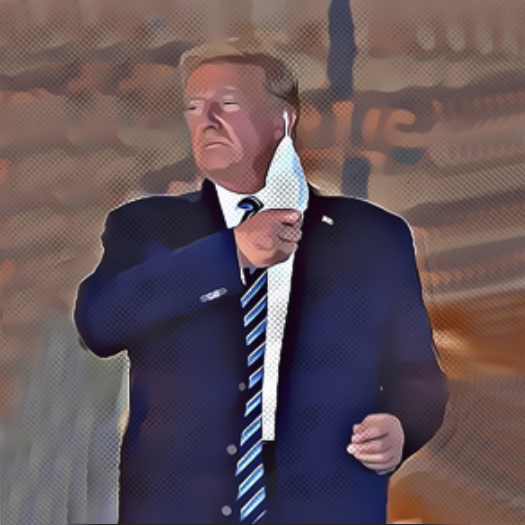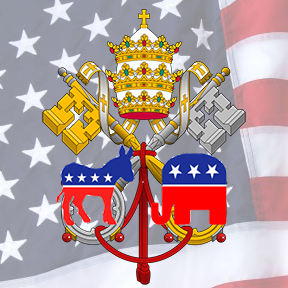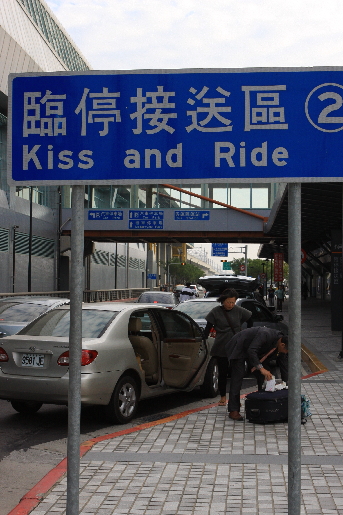
America owes a debt of gratitude to Mr. Trump for showing us who we really are and how fragile many of our cherished democratic institutions are. But that’s not the only reason. And we ignore his gift of this insight only at our own peril.
In a few days, when Joe Biden takes the oath of office as the 46th President of the United States, virtually all of America will be focused on the future: Over half will be anxious to move on, and a significant portion of the other half will be seething and trying to undermine the new administration and regain power. In that milieu, it will be difficult to acknowledge the debt of gratitude all Americans owe Mr. Trump.
This statement may surprise some of the more liberal elements of our political society, and certainly all Democrats. Although most Republicans will continue to think as they have for the past four years, that all honor and praise is due Mr. Trump, they, too, might be surprised at what he actually should be appreciated for: he has showed Americans who we really are. As in the famous story of “The Emperor Has No Clothes,” Mr. Trump has been the little boy shouting out to the emperor, i.e., the polity of United States.
Just four short years ago, Mr. Trump was elected by promising to be norm-smashing, convention-breaking, tradition-flouting, rule-busting and precedent-defying in order to “shake things up.” He portrayed himself as the antithesis of the “typical politician.” That appealed to many voters, fed up with what they saw as “business as usual” in Washington D.C. Fair enough. But, during these four years in power, he has continually demonstrated that he is also dignity-offending, courtesy-ignoring, rule-scoffing, etiquette-spurning, and custom-destroying. In doing so, Mr. Trump has also clearly shown each and every American, regardless of political persuasion, just how many of our democratic institutions – indeed, the very underpinnings of our Republic – are based not so much on actual law as most of us assumed, but rather on 244 years of those very norms, conventions, traditions, rules, precedents, dignity, courtesies, etiquette, and customs. These practices have been respected for so long that the American people have been lulled into a false sense of security based on our (now naïve) assumption that they would always be followed – and critical to our American political structure, that there would be some consequences if they weren’t. Mr. Trump has demonstrated just how quickly our 244 years of history could be turned on its head with impunity: less than four years.
But Mr. Trump’s behavior and actions – and a large swath of the public’s response to it -have shown us something else of equal importance: that America is made up of three broad groups of people, not defined by race, religious persuasion, gender, region, economic class or even party affiliation. Rather, these three groups cut across all the previous categories. They are “the educated,” “the ignorant,” and “the stupid.”
“THE EDUCATED,” “THE IGNORANT” and “THE STUPID”
Now, some definitions are in order. Keep in mind, these categories define and apply to the entire political and voting spectrum with no one entity having a monopoly in any one category. “Educated” does not mean “someone with a college degree.” A college degree is simply a document that states you have mastered some kind of knowledge within a certain field, not that you are well-educated in all things. “Educated” does mean knowing what truth and facts are, and knowing what facts you need to make a decision. It is also knowing what you don’t know, and then objectively pursuing facts and knowledge to learn more, not just within a specified field, but in life. For an “educated person” continually pursues truth and knowledge as part of a lifelong process of “broadening of their mind.” That does not require a degree. It requires an open mind and curiosity. It requires the intellectual abilities to discern and verify facts; to understand complex problems and complicated solutions; to deconstruct arguments; and to express ideas rationally and logically with well-constructed fact-based opinions. In other words, one must be capable of complex thoughts and rational analysis.
“Ignorance,” on the other hand, is neither a pejorative term nor an insult. It simply means you don’t know something because it’s outside your sphere of knowledge or expertise. It is really a component of wisdom in that, when self-recognized, drives people to become knowledgeable, and thus more educated. Self-recognition and the drive to become knowledgeable, however, does not confer expertise or mastery, as any one of us who might have studied calculus or music theory or a foreign language might tell you. A few of the gifted may be able to master the subject and grasp complexities and complicated nuances, but the rest will probably only come away with just an appreciation of the subject matter or perhaps a basic understanding, enough to grasp key concepts and follow along in a discussion as long as it’s kept simple enough.
When ignorance is unrecognized, however, it leads to the state of stupidity. Simply put, these people are not just ignorant: they don’t even know they are ignorant, and confoundingly, are absolutely convinced that they actually are knowledgeable. Therefore, they seek no further information or understanding. Nor can they even conceive that there are valid opposing arguments, let alone that they themselves could be wrong, both of which preclude any possibility of discussion, compromise or realistic solutions.
In a ground-breaking 1999 study demonstrating the critical factors underlying the phenomenon of “stupid,” psychologists Dunning & Kruger studied why large groups of people are incapable of understanding their own limitations. In essence, as they put it, “…if you’re incompetent, you don’t know you’re incompetent …” People experiencing this problem are sometimes colloquially referred to as “sitting atop Mount Stupid.” (Or as Forrest Gump famously put it, “Stupid is as stupid does.” We can get a glimpse of this in the infamous annual “Darwin Awards.”) The Dunning-Kruger Effect states that the skills you need to produce a right answer are exactly the skills you need to recognize what a right answer is in the first place – and these people don’t have it.
THE IMPACT ON POLITICS AND VOTING
Applying that to politics, we do have a large group of educated voters in the United States. These people have political knowledge; they know what they know and don’t know; they seek out facts, they know what facts are and have the will and ability to discern when alleged “facts” are false. They are capable of rational analysis, and come to a position for or against something or someone based on that fact-filled, rational discernment process. Yet that same process might lead one educated person to reach a different conclusion from another. That’s OK because new facts or revised assumptions might also persuade them to reevaluate their positions and change their minds. That’s what the intellectual and scientific process is all about.
We also have the politically ignorant people. These people have limited political knowledge, are easily confused by too much detail or have difficulty discerning factual statements from conjecture and unfounded accusations. It is hard for them to understand complex issues or comprehend complicated solutions. But they are aware that they don’t have all the information and they seek it. They want and need to be reassured by educated and factually-informed sources in simple, easy-to-understand terms that will help them make their decisions on issues. That simple, easy-to-understand requisite means that they can more easily be persuaded – or duped or even cajoled – into making choices by simple, well-crafted messaging. (Candidate Trump won, in large part, because he knew exactly how to refine his messages in simple terms that would resonate with this group of voters in the 2016 election. Candidate Clinton never did figure out how to do this.)
Then sadly, there are the virtually irredeemably stupid people. This group also includes racists and the full spectrum of fanatics, conspiracy theorists and hate-filled anarchists. They have little or no knowledge of facts and do not even know the opinions they hold are based on falsehoods that they have accepted as true because they are unable to discern factual statements from conjecture and unfounded accusations.
The irredeemably stupid are not capable of logical analysis and are taken in by spurious ideology and conspiracy theories that cannot withstand even the most basic rational critique but which instead appeal viscerally to their emotions. There is no intellectual or empathetic component to their consciousness. There is only primitive gut-level yearning for an over-simplified solution to an over-simplified problem because of the underlying suspiciousness that “complexities” only obfuscate the truth from them. Ironically, they are correct, but not for the reasons they suspect.
And despite their frequent bravado, these irrational simpletons are really just sheep – sheep primed for the right orator to mobilize them to his or her own ends. It is the objective writ large in every presumptive dictator’s playbook.
WHY WE SHOULD BE GRATEFUL
So what is it we need to be grateful to Mr. Trump for? It is not the knowledge that these three groups exist in America – that was already widely known. But, at least for the educated group, Mr. Trump has exposed – and inarguably proven – that these other two groups are vastly bigger and more widespread than they ever imagined. Worse, the irredeemably stupid themselves now know this and feel empowered. Going forward, then, the educated among us can ignore this invaluable insight from Mr. Trump only at their own peril – and that of our country. For this, and for exposing the fragility of our American democracy, we owe a debt of gratitude to Mr. Trump.





